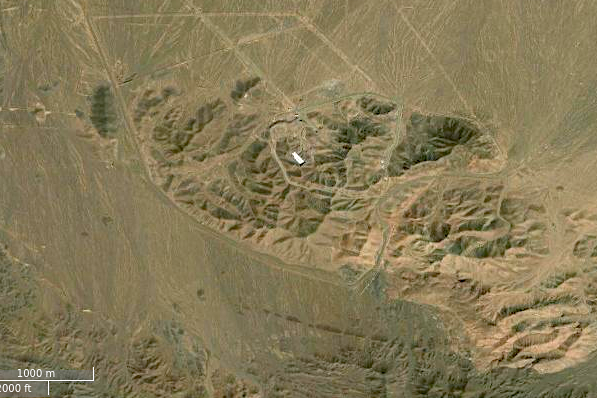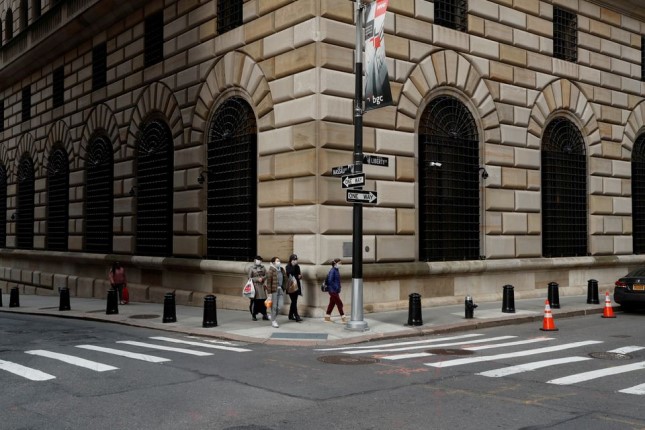Last week marked four years of WikiLeaks publisher Julian Assange being held at Britain’s Belmarsh Prison while he awaits the outcome of his fight to block extradition to the United States.
While the U.S. government is also charging Assange with conspiracy to commit computer intrusion, the core of its case is that Assange violated the 1917 Espionage Act by “possessing” and releasing “defense” material that caused “injury” to the United States or gave “advantage” to other nations, a boundless and limitless standard that can turn virtually any journalist or blogger into a criminal defendant.
No other direction, definition or limitation appears in this law that is now being applied to Assange.
As the government uses it against Assange, the Espionage Act would criminalize any media organization that receives or publishes “defense information” that embarrasses the government. This unlimited grasp of the Espionage Act is awe-inspiring in its capacity to criminalize journalistic endeavors.
Faced with such limitless horizon for prosecution, it would be impossible for any journalist or internet publication to know when their writing will lead to prosecution, a legal posture that will chill or destroy virtually all sensitive journalism.
Assange is being prosecuted, at least in part, as retaliation for speech. The government charges that WikiLeaks published U.S. “rules of engagement” in Iraq but WikiLeaks says it released these only after the U.S. defended the “Collateral Murder” video by claiming the killings were within the laws of war and the rules of engagement.
All this was of intense public interest and well within the bounds of journalism. To use the undefined contours of the Espionage Act to prosecute Assange in this way certainly smacks of retaliation for protected First Amendment activity.
The Espionage Act’s unconstrained language allows precisely what it has been used historically to achieve: the prosecution of dissidents for speech.
The US Constitution & Assange

Belmarsh Prison flyover view. Photo: dave patten, Flickr, CC BY-NC-SA 2.0.
Assange’s case raises troubling questions about whether the Espionage Act breaches both the First and Fifth Amendments of the U.S. Constitution as it is applied to Assange.
An argument can be made that when Assange’s lawyers file a motion to dismiss the indictment the case should be thrown out on both grounds by District Judge Claude M. Hilton, who has been assigned Assange’s case in the Eastern District of Virginia.
In the most open-ended terms, the Espionage Act says any “person” with “unauthorized possession” of “information relating to the national defense…” that “could be used to the injury of the United States or to the advantage of any foreign nation…” is guilty of a crime.
All that is required to prosecute is that the defendant possesses defense information without authorization and/or “communicated, delivered or transmitted” such information to any other person — the very work of daily journalism.
But what does the Espionage Act mean by “unauthorized possession?” To any journalist the First Amendment itself is authority to possess and to publish.
What serious member of the press would not feel “authorized” under the First Amendment to publish defense information such as the “Collateral Murder” video as evidence of American war crimes? Nevertheless, they could face prosecution, as Assange does, under the Espionage Act.
In other words, it can be argued that the First Amendment, which prohibits the government from making any law “abridging the freedom of speech, or of the press” authorized Assange to possess and communicate the information leaked to him by Army intelligence analyst Chelsea Manning.

Chelsea Manning in Union Square Park in New York, May 2021. Photo: Chelsea E. Manning / CC BY-SA 4.0 / Wikimedia Commons.
The Espionage Act unconstitutionally criminalizes that routine of journalism. It ignores that the First Amendment by itself carves out an exception for a journalist possessing and informing the public about state secrets that reveal government crimes and corruption.
The phrase “relating to the national defense” is also so broad that publication of any government document that exposes military abuses could lead to prosecution. Nor does any clearer meaning attach to “injury to the United States” or “advantage of any foreign nation,” standards that could lead to conviction for publication of any government document touching on military or foreign policy.
Assange’s indictment should be quashed on the ground that the Espionage Act’s breathtaking overreach is an existential threat to First Amendment freedoms. For U.S. courts to do otherwise is to undermine due process and impose a vast threat to the First Amendment’s guarantees of a free press.
The Fifth Amendment

Bronze figures of some of the signers of the U.S. Constitution, at the National Constitution Center, Philadelphia. Photo: Elliot Schwartz / CC BY-SA 3.0 / Wikimedia Commons.
The Fifth Amendment says that no one shall “be deprived of life, liberty, or property, without due process of law.” But because of its unlimited sweep, there is virtually no defense to a violation of the Espionage Act, including a public interest defense.
One would think the Espionage Act applies to spying for a foreign power, the logical meaning of “espionage” but, in fact, the statute breezily punishes disclosure of any “information” that can cause “injury” to the U.S. or gives an “advantage” to a foreign nation.
No other direction, definition or limitation appears in this law that is now being applied to Julian Assange.
None of this meets even minimal standards of constitutional notice and due process as the Fifth Amendment has been interpreted.
The Espionage Act violates Fifth Amendment norms of fair play and notice for criminal prosecution. While the Supreme Court has never weighed in on the question, it is almost certainly unconstitutional when applied to journalists or internet publications such as Assange and WikiLeaks.
In the strict constitutional world that governs America’s criminal courts, Congress must give reasonable and intelligible “notice” so that the ordinary person will understand just what conduct will violate the law.
The Espionage Act is so broad as to violate the Fifth Amendment’s requirement that a statute give this actual notice as to what acts comprise a criminal offense. It is up to Congress to amend the Act to make this clear.
Viewed in this way, the Espionage Act applied to Assange or any other journalist violates basic norms of due process, an argument Assange’s British legal team should make to the British courts that will have the final say on his extradition.
A Question of Jurisdiction
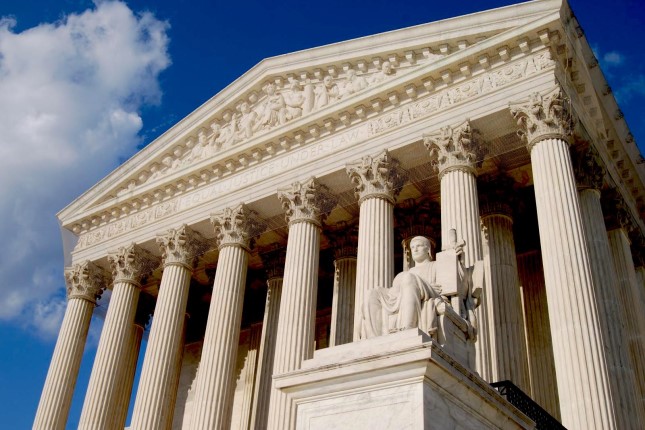
U.S. Supreme Court Building. Photo: Christina B Castro / CC BY-NC 2.0.
Equally important is whether the U.S. can ever prosecute a foreign journalist such as Assange who committed no act on U.S. soil, is not a U.S. citizen and has never lived in the U.S.
As the Supreme Court made clear in a case concerning AT&T’s attempt to enforce patents against Microsoft in foreign countries, “It is a basic premise of our legal system that, in general, United States law governs domestically but does not rule the world.”
In yet another case, the Supreme Court has long noted the presumption against extra-territorial reach of American laws unless there is “clearly expressed congressional intent” and has held that Congress must “unmistakably instruct” it has intended a law to reach people outside of this country.
In other words, the government can reach across the seas to bring a foreign defendant to U.S. courts but only if it gives “unmistakable” notice in the law that it plans to do so. Under these principles the U.S. does not and cannot have jurisdiction over Julian Assange.
In contrast to these long-standing principles, nothing in the Espionage Act gives notice that Congress “clearly” and “unmistakably” intended the law to have extra-territorial reach.
When the section on the Espionage Act’s jurisdiction being restricted to U.S. territory and the high seas was repealed in 1961, it was not replaced with clear language extending jurisdiction globally.
Instead, the Espionage Act speaks only to punishment for taking documents from U.S. government facilities. But it continues no provision that receiving emails or texts in another country from a U.S. government employee will turn a foreign journalist, blogger or platform owner into a criminal defendant.
Put simply, the Espionage Act contains no provision that the U.S. can prosecute foreign journalists simply because they receive government documents from a U.S. source.
In the scenario posed by the indictment against Assange, any foreign journalist can be extradited to the United States, thrown into solitary confinement in a federal prison while they await trial and hauled into an American courtroom for no greater reason than that they asked for and received documents from a U.S. government employee, all while remaining abroad and without notice that the U.S. government would prosecute journalists for actions that may be lawful in their countries.
As with Assange, foreign journalists could find themselves criminal defendants in the U.S. having committed no offense anywhere else.
No Such Nexus
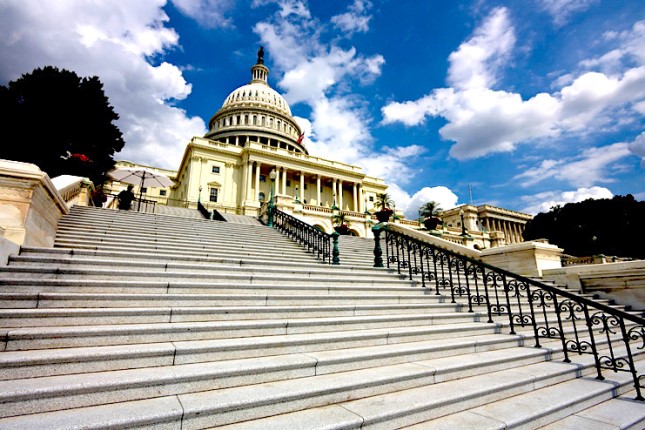
U.S. Capitol steps. Photo: Alan Grinberg / Flickr / CC BY-NC-ND 2.0.
In cases where Congress has created extra-territorial jurisdiction it always includes in the law a specific geographic tie or “nexus” to the United States.
For example, the Foreign Corrupt Practices Act makes it a crime under U.S. law for a foreign company to bribe a foreign official where the bribe goes through a U.S. bank or the company’s stock is traded in the U.S. It is only by including such geographic “nexus” that Congress can make U.S. bribery laws reach across the seas.
Unlike other statutes, the Espionage Act contains no such nexus as to journalists who are nationals of other states and do their work entirely abroad, such as Assange.
In fact, Congress gave no notice that foreign journalists can be prosecuted under the Espionage Act for a very good reason: to do so would outrage America’s allies and other nations.
Using the government’s reasoning, a journalist abroad who calls a U.S. government source and asks for confidential information or receives emails or texts with “defense information” can be forcibly extradited to the U.S., torn away from their families and thrown into a U.S. prison without having necessarily violated any known law in their own countries.
To use the Espionage Act in this way will not only create international chaos but will further chill the very willingness of journalists to do their jobs: to uncover and expose governmental crime and misconduct, the mission of the working reporter.
Assange presumably placed WikiLeaks in Iceland precisely because at the time, in 2010, Iceland said it would be a legal safe haven for journalists. He also would have seen that the Espionage Act contained no provision giving the U.S. government extraterritorial jurisdiction over foreign journalists.
Having been led by Congress’s silence to believe the law has no extraterritorial reach, it would now breach fundamental notions of fairness and due process to extradite Assange from the U.K. and haul him into an American court and U.S. prison while he awaits trial.
Spying & a Planned Assassination
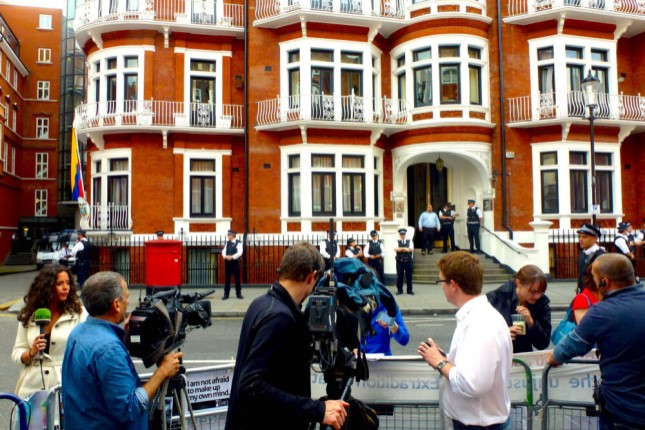
Ecuadorian embassy in London where Julian Assange took asylum. Photo: nick.hider / CC BY-SA 2.0 / Wikimedia Commons.
Like Pentagon Papers whistleblower Daniel Ellsberg 40 years earlier, Assange, has been the subject of illegal surveillance, according to testimony in Madrid against the founder of the Spanish company UC Global. The firm was hired by the C.I.A. to spy 24/7 on Assange inside the embassy, eventually in real time, according to the testimony.
The C.I.A. also planned to kidnap or assassinate Assange in the embassy, witnesses in the case said. Their testimony was read at Assange’s extradition hearing in London in September 2020. The C.I.A. plan was later confirmed by former U.S. officials in a Yahoo! News report in September 2021.
There is precedent for throwing out a case when evidence emerges of eavesdropping on privileged conversations between a client and a lawyer, as happened with Assange and his attorneys.
In 1973, facing an almost identical scenario, U.S. District Judge William Byrne dismissed all charges against Ellsberg and fellow whistleblower Anthony Russo because of the government’s admission of illegal surveillance, wiretapping and break-in of Ellsberg’s psychiatrist’s office.
Calling it an “an unprecedented series of actions” that “offend “a sense of justice,” Byrne said he was forced to dismiss all charges because the “conduct of the government has placed the case in such a posture that it precludes the fair dispassionate resolution of these issues by a jury.”
Placing Assange’s lawyers and other visitors under surveillance at a time when the government was considering criminal charges against Assange (or had already indicted him) is equally a breach of due process and offensive to a sense of justice.
That such surveillance took place abroad hardly mitigates the harm. As long as the government believed it could prosecute Assange, it was required to adhere to basic due process and a sense of fundamental fairness.
Whether Assange broke U.S. law is one thing, but the disregard of due process is never within the power of the government and should require dismissal of the case against Assange as it did Ellsberg and Russo four decades ago.
Is Assange a Fugitive?
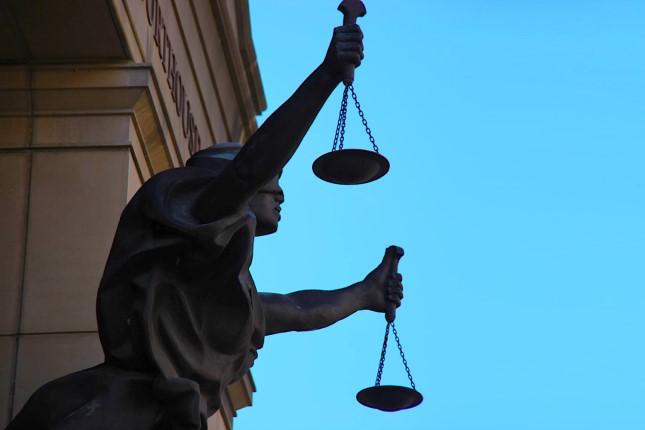
Statue of Blind Justice outside U.S. courthouse in Alexandria, Virginia. Photo: Tim Evanson / Flickr.
Fighting extradition in the U.K. is far from Assange’s only legal option.
While he is still imprisoned in Britain, Assange can move to quash the indictment in federal court in Alexandria, Virginia, where his indictment was filed. Grounds for such a motion certainly exist: the Espionage Act as applied to journalists, bloggers and platform hosts is unconstitutional — its broad brush language criminalizes journalism that is protected under the First Amendment and is vague and overboard, a blunt weapon to stifle dissent.
One may ask, “Isn’t Julian Assange a fugitive and not entitled to ask for judicial relief until he appears in court?” While this may seem logical, it is a misunderstanding of what is known as the “disentitled fugitive doctrine” that bars a defendant who flees the U.S. to avoid prosecution from asking the court for any favorable ruling until they return.
Assange is not truly a fugitive as our courts have traditionally understood the term. Assange did not flee the United States, never lived here and was not in the U.S. when he communicated with Manning and published on WikiLeaks, which was then based in Iceland.
As one court has put it, a defendant is a “disentitled fugitive” when he “absented himself from the jurisdiction with the intent to avoid prosecution.” (United States v. Nabepanha, 200 F.R.D. 480. S.D. Fla., 2001)
The Supreme Court defines a fugitive as one who “has left its jurisdiction and is found within the territory of another.” (Streep v. United States, 160 U.S. 128, 16 S. Ct. 244, 1895.)
Assange hardly qualifies as a fugitive under this standard since he never fled U.S. jurisdiction. A foreign national is not a fugitive simply because they did not come to the U.S. after being indicted.
Court decisions concerning the fugitive disentitlement doctrine almost universally concern people who lived in the U.S. when their alleged offenses were committed and then left, failing to return after learning of the indictment.
This does not apply to Assange who should be able now, while he is still in the U.K., to ask the U.S. federal court to quash his indictment as unconstitutional.
Not only is this his right but it is supremely logical. Among Assange’s most powerful grounds for quashing the indictment is that the Espionage Act does not “clearly” and “expressly” give Congress extraterritorial jurisdiction. For this reason alone it is entirely reasonable for Assange to seek dismissal while remaining outside of the country.
It would be a miscarriage if Assange is required to appear in the U.S. and face months of punishing solitary confinement in federal prison just to argue that the law does not have exterritorial application and he should never have been brought to the U.S. in the first place.
Assange should be free to make such an argument now, while remaining outside of the United States and safe from the tender mercies of pre-trial confinement under the Espionage Act.
Main photo: Julian Assange at the “New Media Days 09” in Copenhagen, November 2009 © New Media Days / Peter Erichsen / Wikimedia Commons.
Source: Consortium News.





















